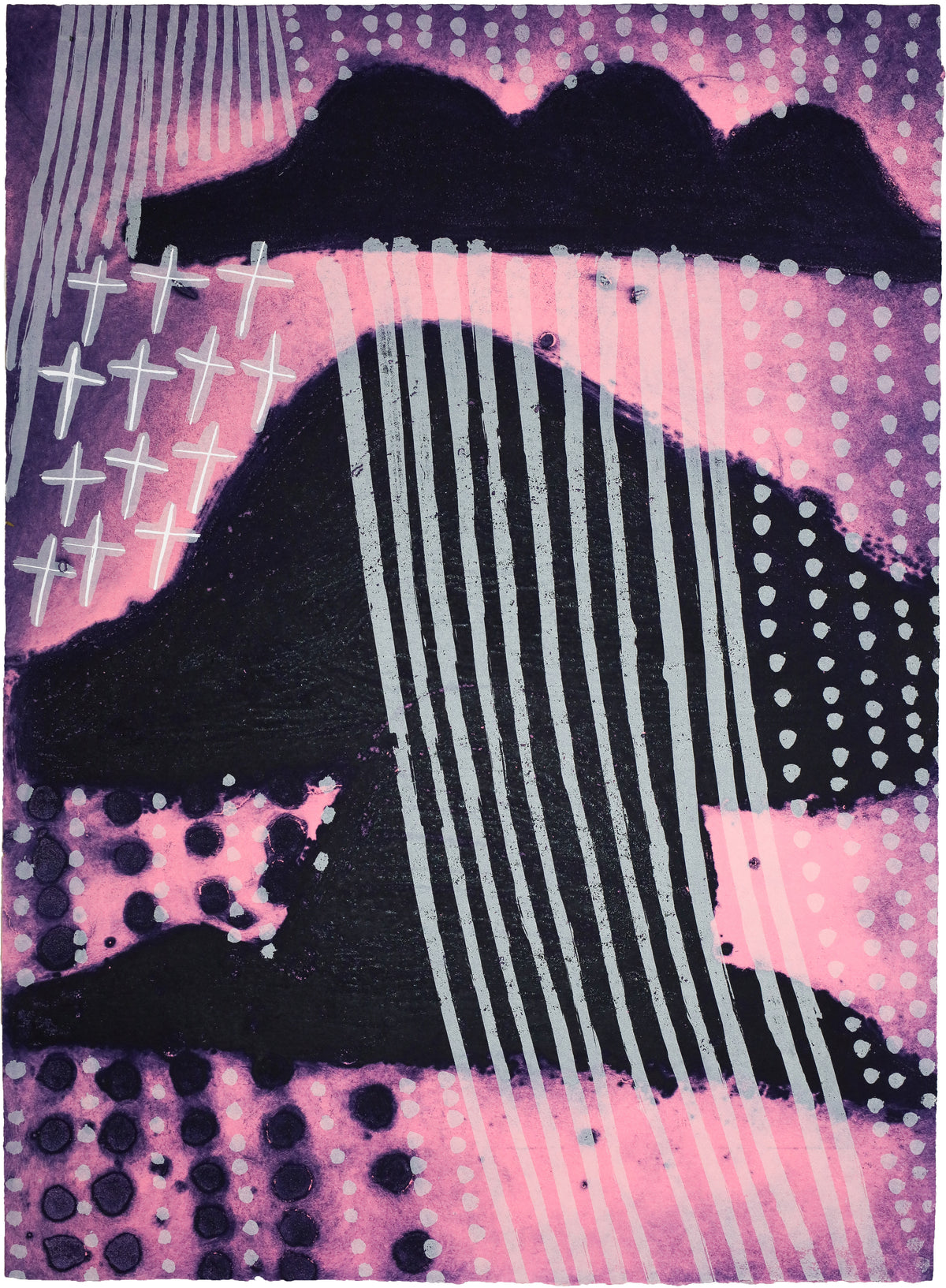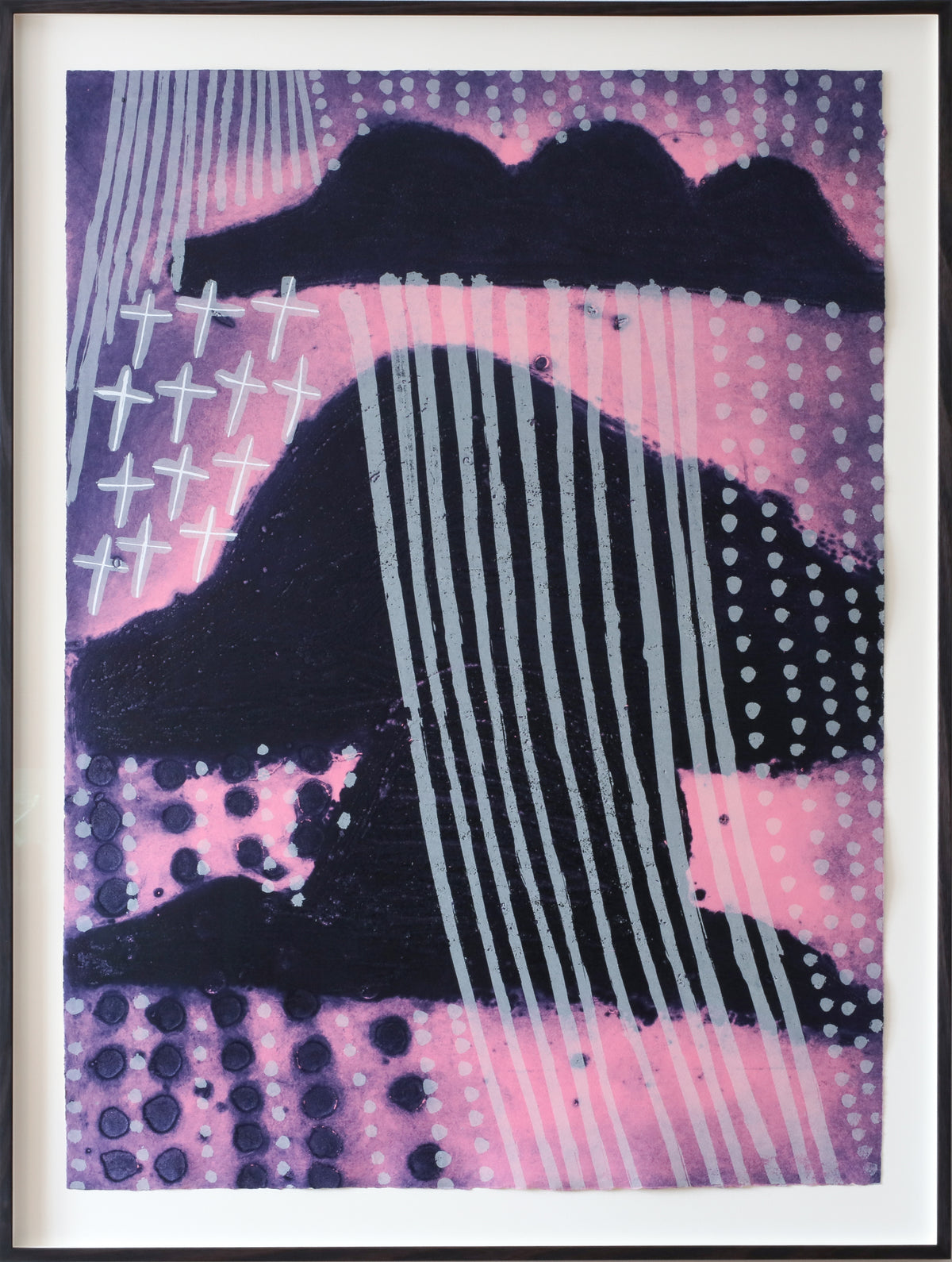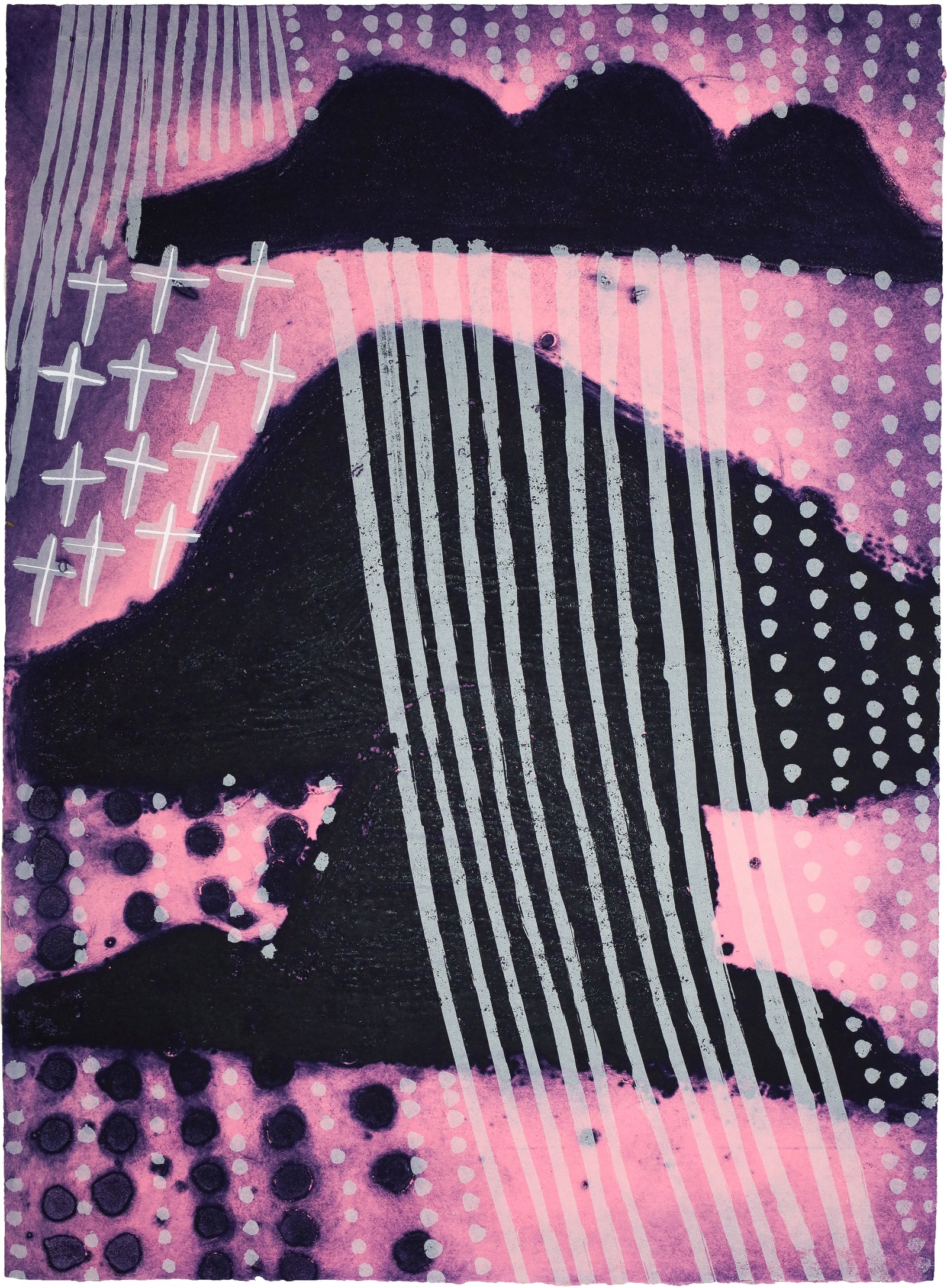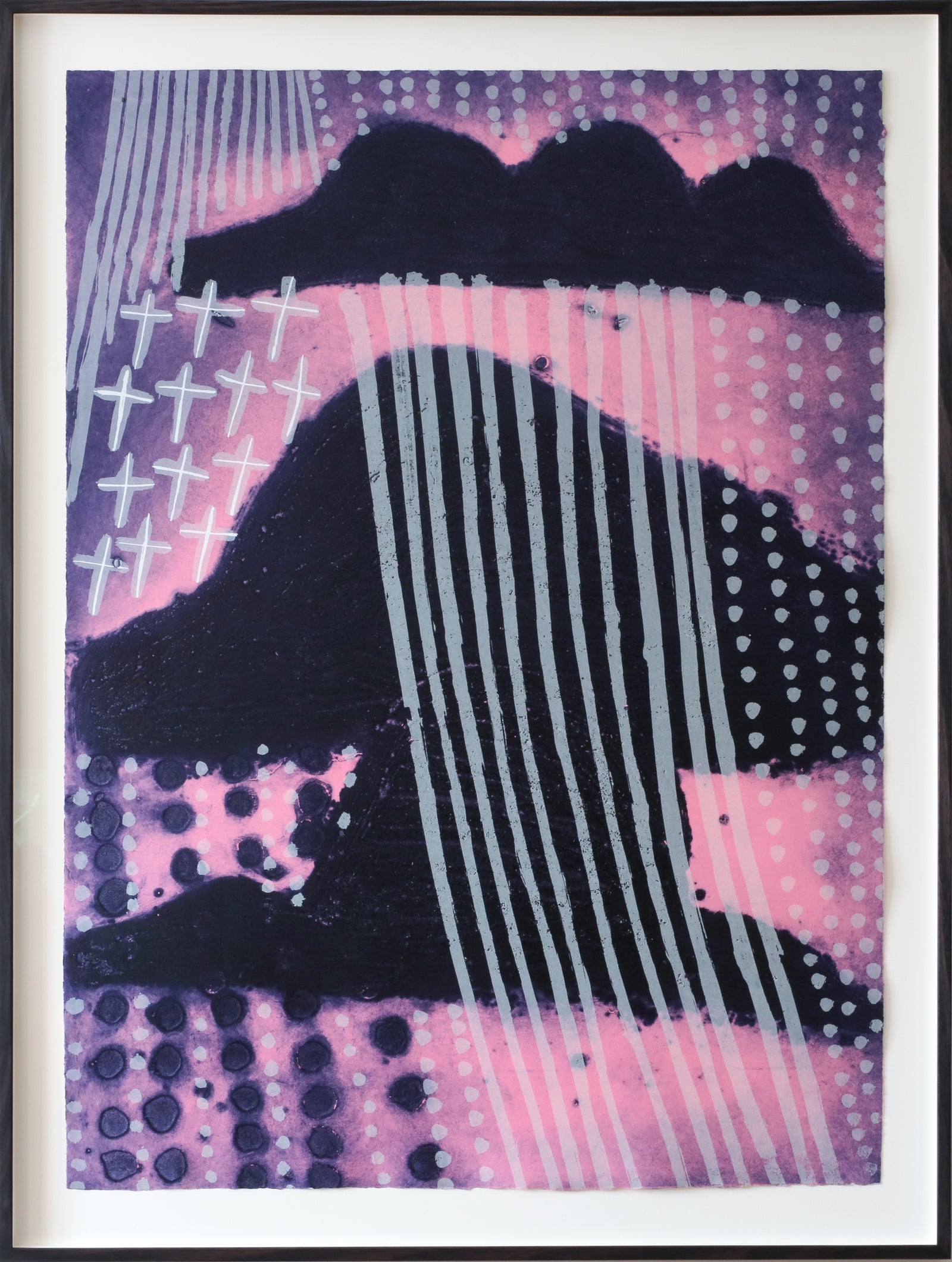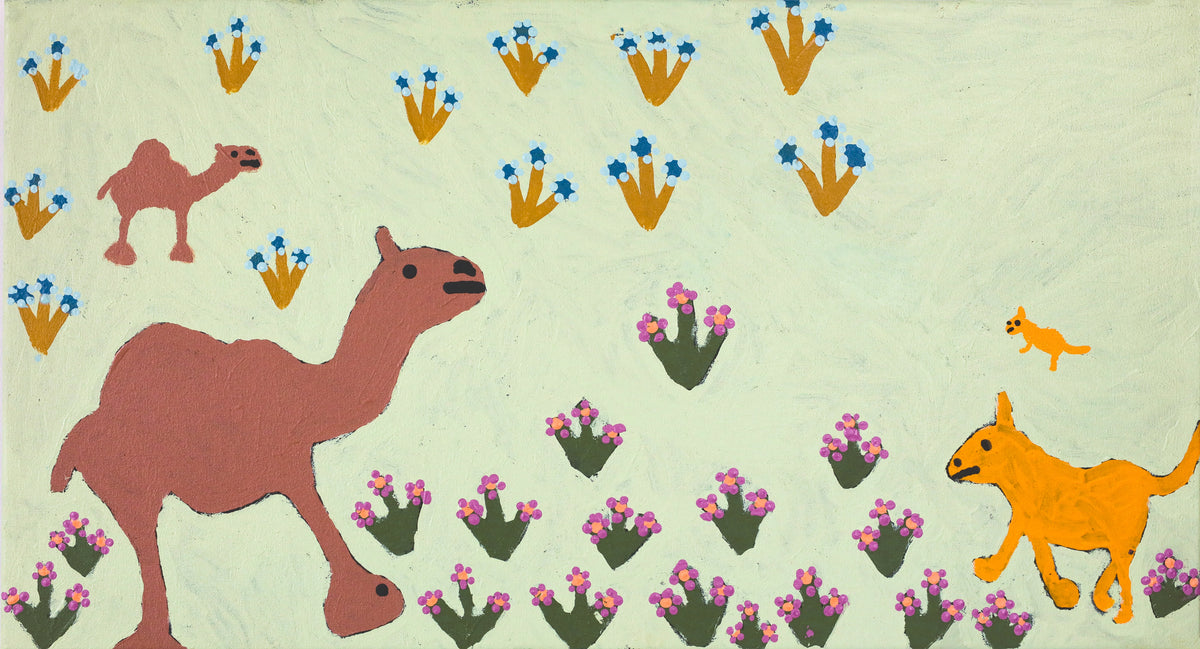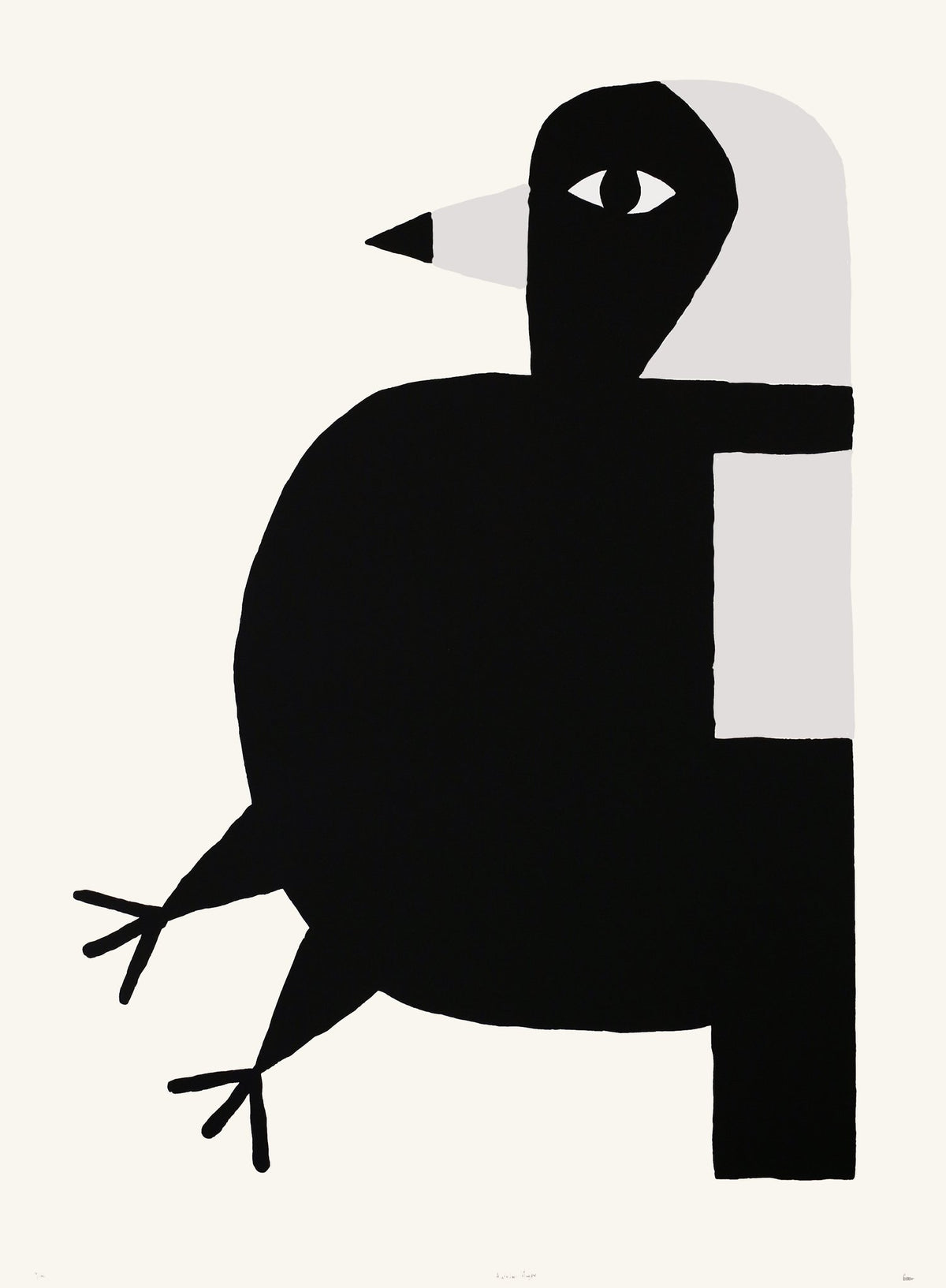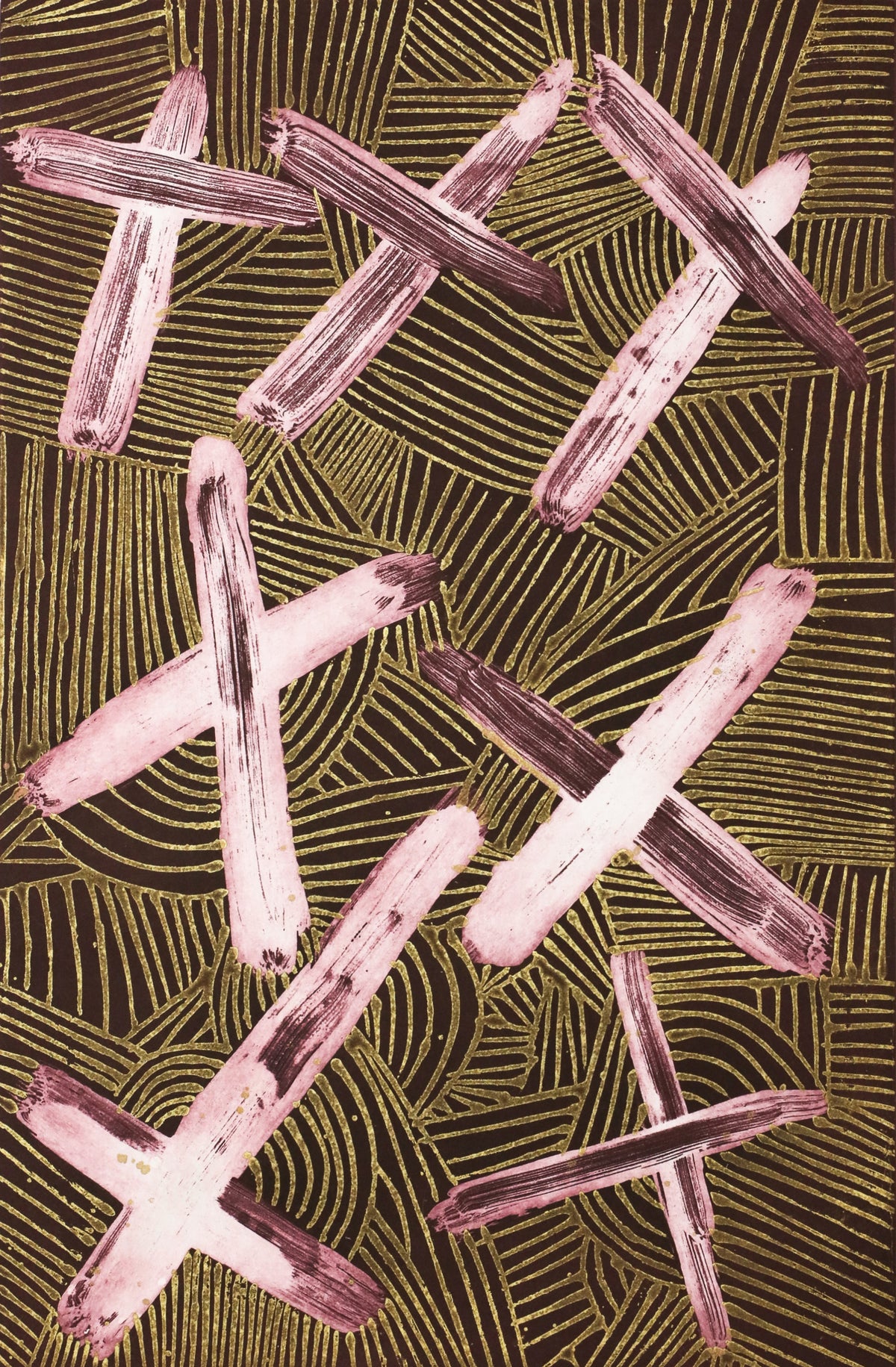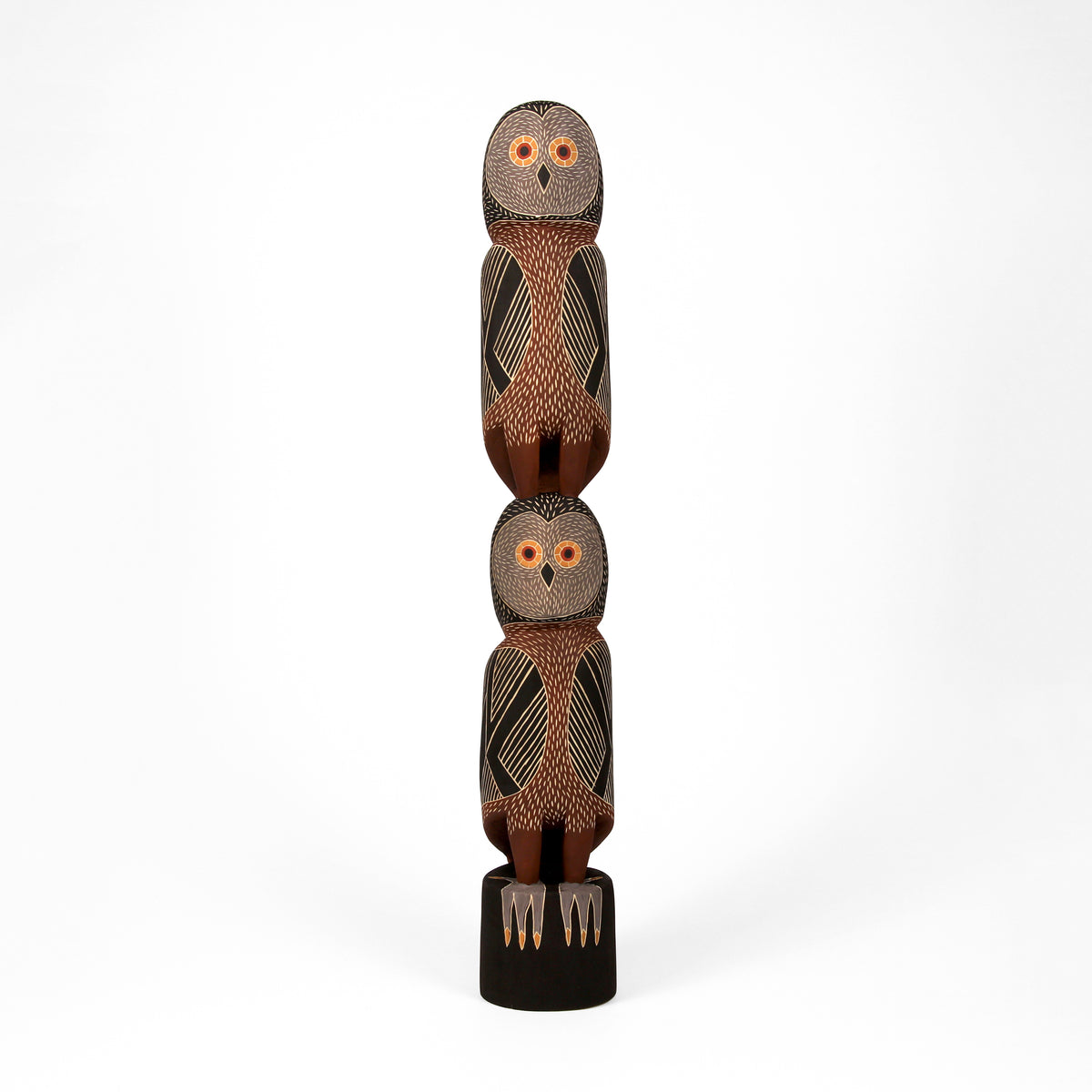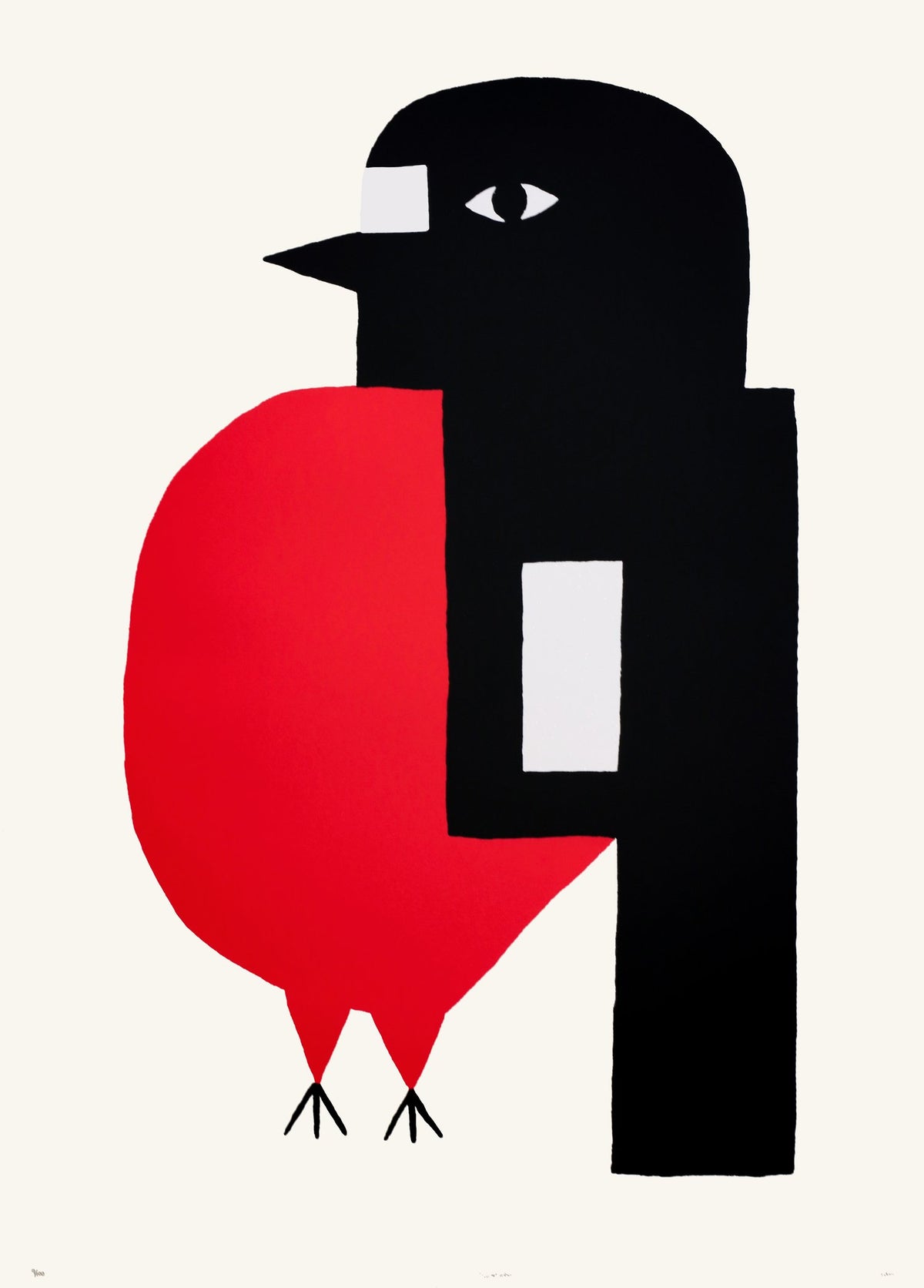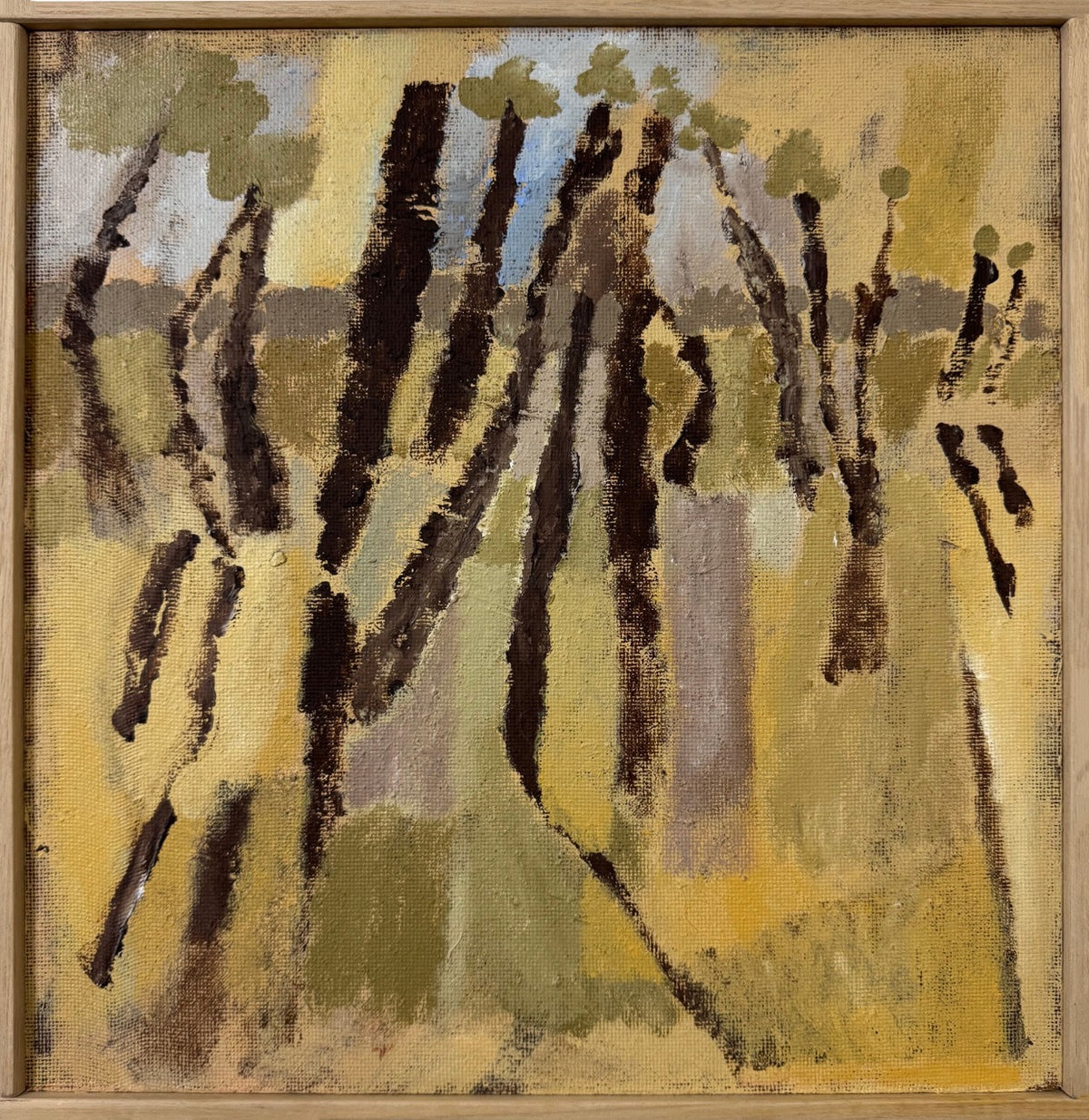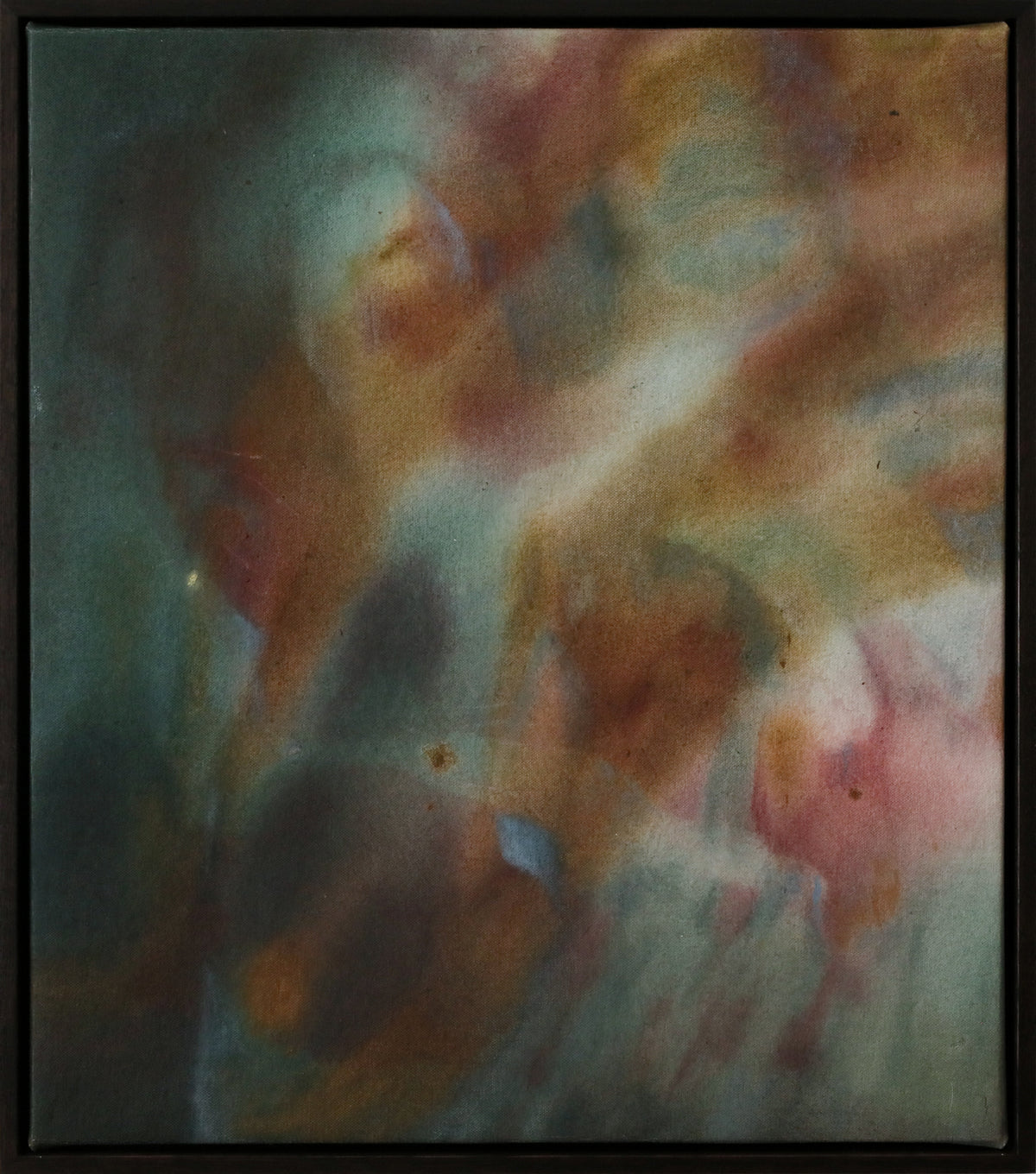Tears of the Djulpan 5800-24
This artist is daughter of Mungarrawuy Yunupiŋu whose two sons Galarrwuy and Mandawuy have pursued the struggle for land rights he spearheaded until his death.
The Djulpan story is about seven sisters who went out in their canoe called Djulpan. During the harvest season following the Wet they go hunting and always come back with different types of food: turtles, fish and freshwater snakes, and also bush foods like yams and berries. They can be seen in the sky of a night in April. Seven stars that come out together. Known in English as the Plaiedes
The stars come in season when the food and berries come out, the stars will travel through the sky during that month until the season is over and they don’t come out until the next season. Yunupingu’s father told her about these seven sisters in a canoe, and the three Dhuwa moiety brothers who came behind them, following them (Orion’s belt). This constellation appears low in the Western sky in April and is in the shape of a canoe with a hunter standing up aiming a spear. They travel west. There are special stars in the sky which Yolngu call wishing stars. They give Yolngu bush tucker; they multiply the foods in the sea – that’s why Yolngu are happy to see them. That’s what Yunupingu’s father told her.
The Djulpan make it to their home over the Northern horizon and then cook their food. The smoke from their fires is sometimes visible. This appears to be a reference to actual visibility of such extreme events in Irian Jaya as volcanoes, dust storms and severe bushfires. Smoke or dust from such rare events is also mirrored in certain cloud formations that appear after the Sisters have left the sky. It is only then that the Yolngu of this dimension can set their customary annual fires. If fires are lit before this the Djulpan will become sad and jealous and cry. Their tears in the form of unseasonal rain will extinguish the presumptuous fires. Tears of rain known from the songs as Nyalala Gurmilili.
Little more was revealed about this body of knowledge until another of Djakaŋu’s sisters, Eunice Djerrkŋu Yunupiŋu created a publication for the Yirrkala Literature Production Centre attached to the Yirrkala School. This is the transcript of that book.
English Version of Djulpan – The Seven Sisters or Pleiades Star Cluster
Djulpan, the Seven Sisters are one of the first creations. They are a important song and story. Our fathers sang about the Djulpan. As they sang, the women would keen*, crying out the sacred words and names. That’s how we learnt this story and my sisters and I still cry these songs to this day, passing on the story of the Djulpan to the next generations.
The Djulpan left the ancestral elders Nyiwuṉba and Rranyirranyi at the islands called Djakapurra, Gurrarri, Nalkuma, Dhakalŋa, Bandayŋa, Ŋarrayarri and Wärru. In ceremony you will hear the Gumatj people singing these Yirritja names. For the Dhuwa people, this is like the place called Burralku.
From that place across the sea they paddled in their canoe. They were wise and skilled people.
They travelled from island to island, stopping for a few days to rest, gather food and collect water. They gathered yams, fruit and shellfish. When they left, they would burn the island to rejuvenate the land and to let others know of their journey.
We believe that if you burn the land before the Djulpan stars rise in the sky, they will get jealous and send rain to extinguish the fire. The Djulpan stars are only visible from Arnhem Land for part of the year. They arrive in the night sky during Miḏawarr, the harvest season.
The Djulpan were the first to burn this land. They had hands of fire like the two ancestral beings Nyiwunba and Rranyirranyi. All the people of those islands had the knowledge of how to burn the land and used fire everywhere they went.
On their way the Djulpan stopped paddling to sleep for the night at an island called Bolumi. They searched for turtle eggs and shellfish on the shores and gathered food like yams to take with them.
*Keening or Milkarri in Yolŋu Matha is sometimes refered to as “crying”. Milkarri is often conducted by a group of women who cry ceremonially, recalling their loved ones using sacred words and names.
They burnt that island and kept paddling to the next island called Bändawi. Again they gathered food, ate then slept and in the morning they set out again.
This is the law of the Djulpan from long ago. That was our law before, the law of the Djulpan.
The Djulpan paddled until they arrived at Nanydjaka (Cape Arnhem). There they rested for some time to gather their strength, then set off again along the coast, passing the Gumatj lands near Manydjarrarrŋa (Daliwuy Bay). They travelled passed the Dhuwa lands Bariŋurawuy and Ŋumuwuy (Turtle Beach). They passed by these Dhuwa places and landed at Gärriri (the Yirritja side of the creek at Rocky Bay). They paddled up the beach called Dhuraka (Rocky Bay) and this is where the Djulpan ended their journey.
It was there at Dhuraka that the Djulpan became people, there they became one group of Yirritja women. “This is the place,” they proclaimed. “This place, Dhuraka, Djeŋgawuy. We have reached our destination,” they said. In time their canoes turned to stone. Their names are Djulpan and Berrupirru and they stand in the water just off the beach at Dhuraka (Rocky Bay).
The Djulpan represent Yolŋu women. They represent all women who live in harmony with nature, hunting and gathering the seasonal harvest of the land. When women go in search of bush food like yams and other root crops they recreate the story of the Djulpan. Women embody the law of the Djulpan, when collecting water chestnut, native cashew, native currajong, waterlily bulbs and many other kinds of food, fruit and seafood, Yolŋu women are the Djulpan.
That is the old way of life, the way of those stars and the way of our people before when Yolŋu women travelled together just like those stars the Djulpan, the Seven Sisters.
Edition of 50.
SHIPPING
Brunswick Street Gallery would be pleased to arrange a quote for shipping if you are unable to collect directly from us.
Please be advised that oversized and/or fragile artwork or artworks being sent to remote areas may incur additional shipping costs.
FLEXIBLE PAYMENT
Afterpay, Laybuy
EXHIBITIONS
Artworks purchased from current exhibitions will be available for collection or shipping after the exhibition has ended.
–
